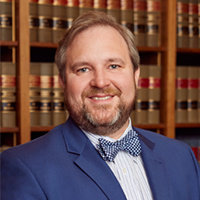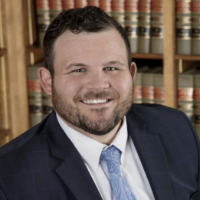Arkansas RICO Act Lawyer List
Sponsored Law Firm
-
 x
x

Click For More Info:
-
The Law Offices of Richard L. Cooper, P.A.
848 Brickell Avenue Suite 800 Miami, FL 33131» view mapDWI/DUI, Drug Trafficking, Felony Nationally Ranked Top 40 Under 40
With Richard L. Cooper you can expect a trusted confidant who will work diligently to fully understand your case and determine a road map to help you regain control of your life.
800-756-2781
Tim Snively
✓ VERIFIEDTim provides comprehensive legal advice and representation to clients facing a wide variety of legal challenges and opportunities. He has handled all ... (more)
Josh Mostyn
✓ VERIFIEDJosh Mostyn is a founding Member of Mostyn Prettyman, PLLC. He is a past Benton County Bar Association President. Josh clerked for the Hon. Brad K... (more)
David Wallace Parker
✓ VERIFIEDFormer prosecutor, David Parker, joined Dodds, Kidd, Ryan & Rowan in 2017. After graduating from UALR William H. Bowen School of Law in 2008, David w... (more)
Judson Candler Kidd
✓ VERIFIEDI was exposed to law at an early age as my grandfather and father were trial lawyers, grandmother was a court reporter and my uncle was a US Marshall.... (more)
Jered Medlock
✓ VERIFIEDMichael Jered Medlock was born in Fort Smith, AR in 1980. He resided with his mother, father, and two sisters: Jill and Jessica, in Mulberry, AR until... (more)
Michael Alan Lilly
✓ VERIFIEDAttorney Michael Lilly has been a licensed attorney in Jonesboro, Arkansas, for almost 20 years, with his general areas of practice including family l... (more)
Robert Alston Newcomb
✓ VERIFIEDMr. Newcomb proudly represents clients in need of Criminal and Employment matters.
Lucas Zachary Rowan
✓ VERIFIEDLucas Zachary Rowan is a practicing lawyer in the state of Arkansas handling personal injury, criminal and family law matters.
Catherine A. Ryan
✓ VERIFIEDLittle Rock native Catherine Ryan joined Dodds, Kidd & Ryan in 2016 after fourteen years representing injured parties as a trial lawyer in Boston, Mas... (more)

 Richard L. Cooper Miami, FL
Richard L. Cooper Miami, FL AboutMiami Attorney at Law
AboutMiami Attorney at Law ServicesCriminal Defense
ServicesCriminal Defense










